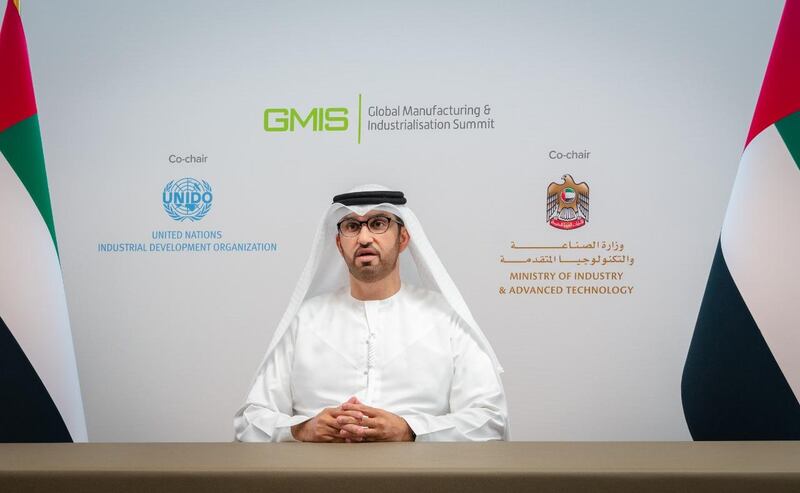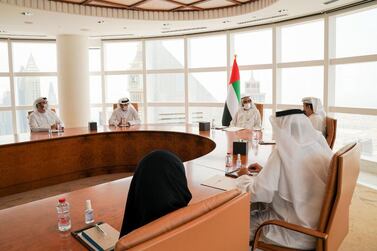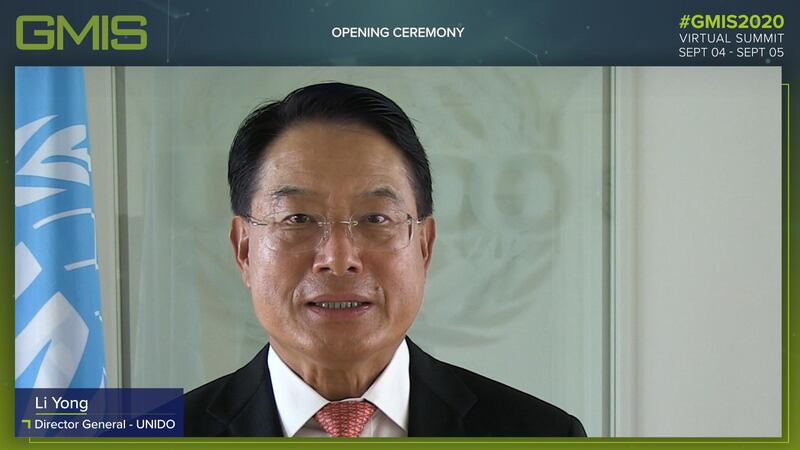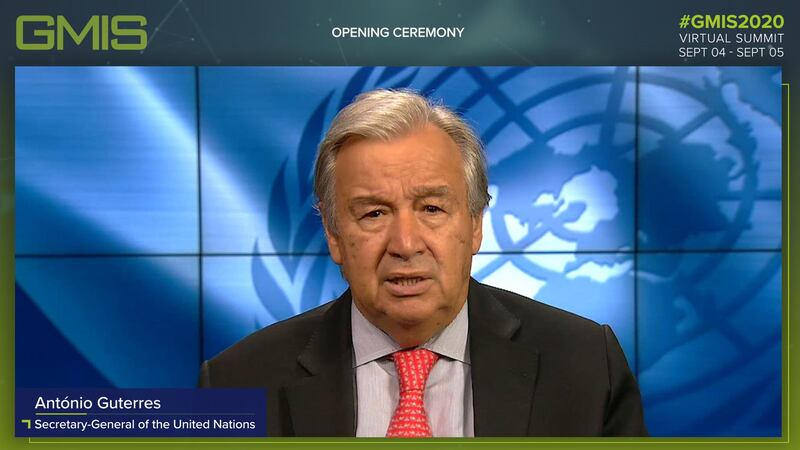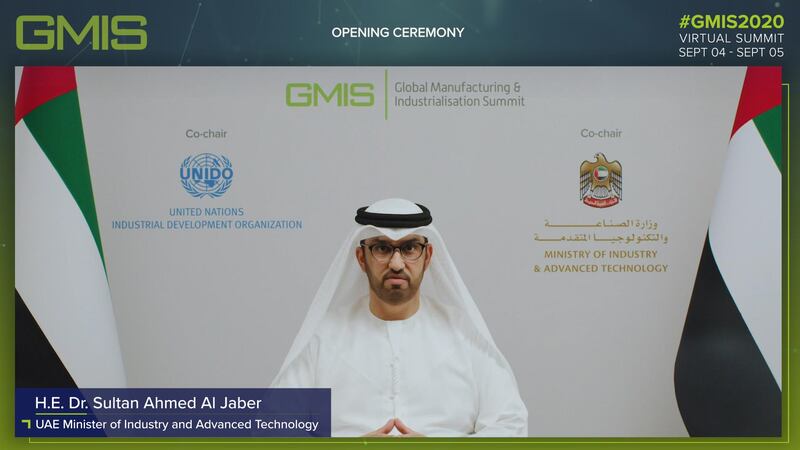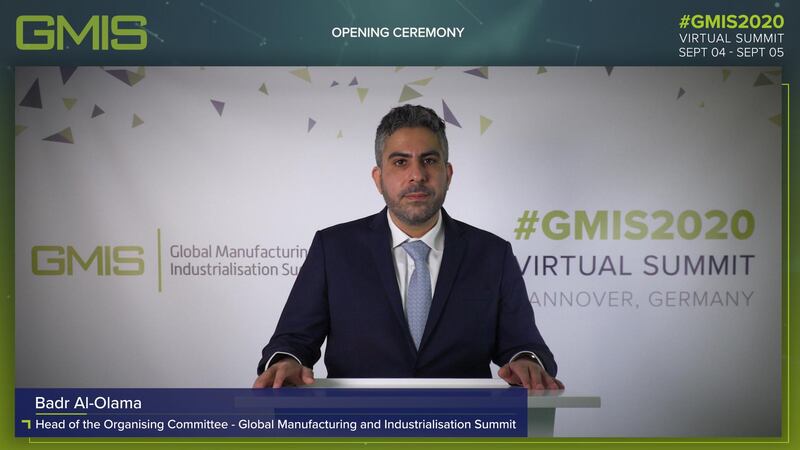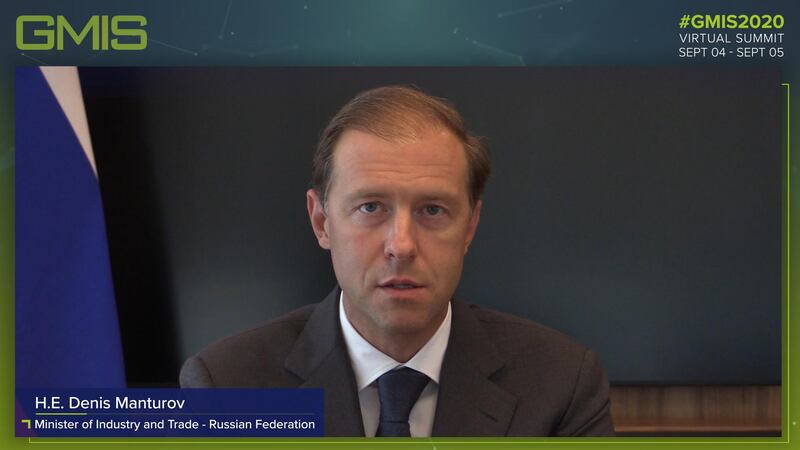The UAE will look to strengthen its position in new high-value growth sectors such as biotechnology, health care and pharmaceuticals, as well as bolster its self-sufficiency in critical sectors, according to the country’s Minister of Industry and Advanced Technology.
"We will unlock greater value from sectors where we have existing strengths, including energy, petrochemicals [and] metals," Dr Sultan Al Jaber told delegates attending the Global Manufacturing and Industrialisation Summit online on Friday.
"We will start to get sectors that strengthen our self sufficiency, including water and agriculture,” he said.
Dr Al Jaber was speaking alongside UN Secretary General Antonio Guterres and UN Industrial Development Organisation director Li Yong.
Dr Al Jaber also laid out the mandate for his new ministry, which is to "enhance national industrial development, increase competitiveness, reinforce resilience, as well as drive in-country value by accelerating economic diversification".
Technology such as artificial intelligence and newer means of communication has played a big role in the UAE's shift from being a hydrocarbon resource-based economy.
The UAE has invested in those fields for years and it was the first country in the world to appoint a minister of AI.
"The experience of this year has demonstrated just how interconnected the world's economies truly are,” Dr Al Jaber said in the keynote remarks that opened the two-day event.
"Now is the time to work even more closely together, and the UAE is more than ready to play its part as a constructive partner to all who wish to work with us,” he said.
The UAE has intensified its efforts to meet demand from critical sectors such as health care amid a global pandemic.
Strata, a Mubadala-owned company focused on building composite parts for aircraft, switched gears to manufacture personal protective equipment after the outbreak halted air travel and grounded planes.
Strata began producing N95 masks in partnership with US energy services company Honeywell in May and secured enough orders within the country to keep it busy until the end of the year.
Dr Al Jaber said the UAE would tap “breakthrough technology” to enhance industrial performance and enable better integration among sectors.
"By embracing technology, we will also nurture a knowledge-based economy and create an ecosystem that supports and creates sustainable jobs,” he said.
AI is expected to give the world’s gross domestic product a 14 per cent boost by 2030, equivalent to $15.7 trillion (Dh57.7tn), according to business consultancy PwC.
Experts believe that AI’s contribution to the UAE economy will match the projected global increase – the largest GDP share in the Middle East – in the same time frame.
Mr Li said the Covid-19 pandemic had created a wider understanding of global interdependency and the link between supply chains and society.
“In these extraordinary times, a sense of clarity is more important than ever … no matter how influential, no one actor can control this phenomenon alone.”
“We can only hope to shape an inclusive and sustainable Fourth Industrial Revolution through building strong multi-stakeholder partnerships with representatives of national governments, multilateral organisations, the private sector, the research community and civil society,” he said.
